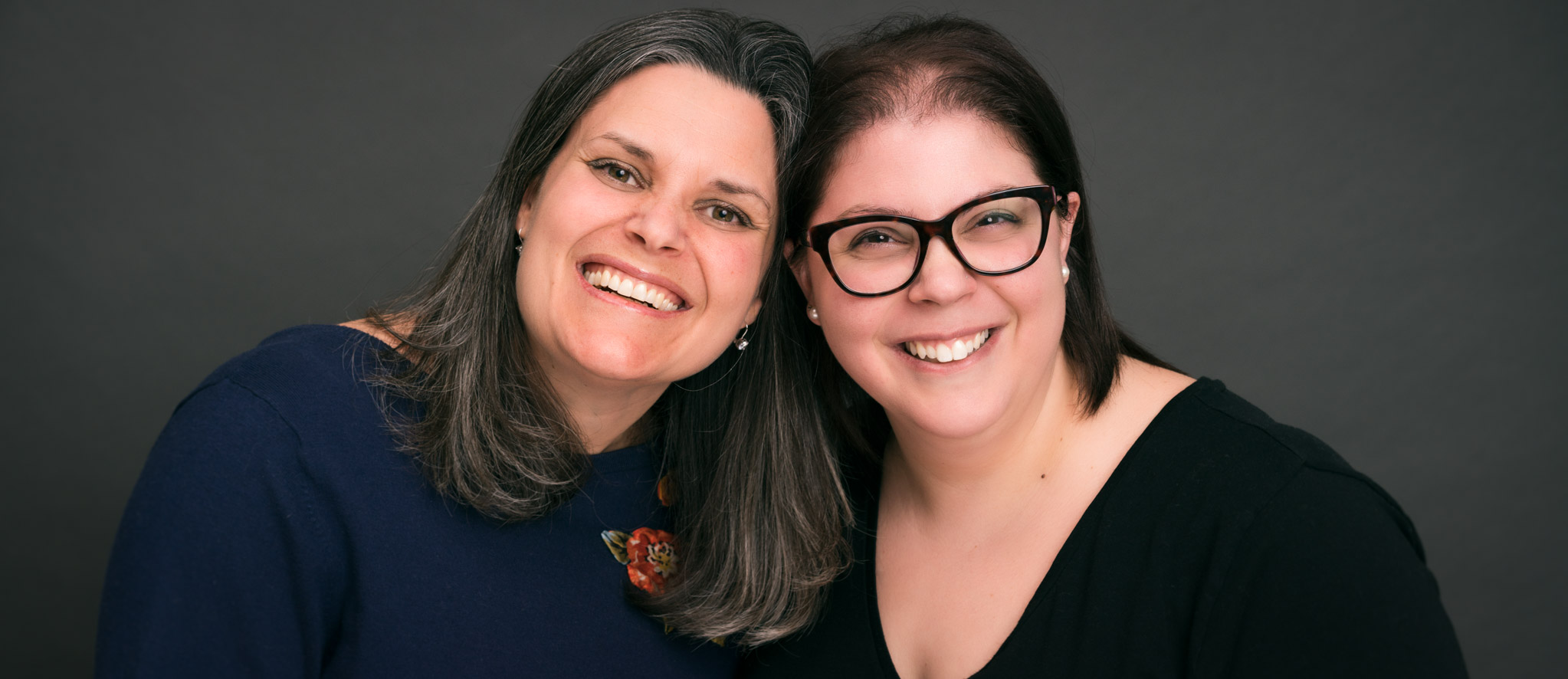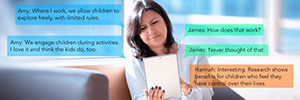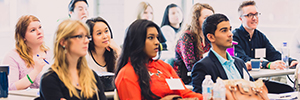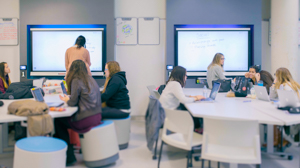- Future Students
- Current Students
- Faculty
- Staff
- Alumni
- Others
Inspiring leadership in early childhood professionals
 Dr. Nikki Martyn and Elena Merenda
Dr. Nikki Martyn and Elena Merenda
The field of early childhood education has changed rapidly and irrevocably in recent years, as early childhood professionals have come to be viewed from a social and political perspective as influential leaders who play a vital role in the lives of children and families.
As a result, post-secondary early childhood programs must adapt to that shift by better addressing a current lack of leadership education in the field, according to new research published by University of Guelph-Humber Early Childhood Studies Program Head Dr. Nikki Martyn and Assistant Program Head Elena Merenda.
Published in the U.S.-based The International Journal of Early Childhood Learning, Dr. Martyn and Merenda’s article – entitled “Organizational Improvement Plan: Responding to the Absence of Leadership Education in the Early Years Curriculum” – provides a series of three recommendations to revise Early Childhood Studies program curricula to better prepare students to become leaders.
“We really thought about how to push the field forward to be able to ensure that we have leadership. Early childhood professionals need to understand what their discipline is, what they can articulate about their field, and how they can advocate for children,” Dr. Martyn said.
“The most exciting thing for early childhood educators is that they’re with children all day, every day – so it doesn’t make sense that they don’t sit at the table with other professionals to use those experiences to inform policy and decisions relating to children.
“These early childhood professionals know the whole child – including social, cognitive and emotional development – better than anybody else.”
An organizational plan
Dr. Martyn and Merenda’s article clearly defines a three-point proposal for addressing the absence of leadership education in the early years curriculum.
The first recommendation is to initiate a review and revision of program courses. As the article explains, the goal of the program courses should be to take Early Childhood Studies students on a journey that allows them to discover the type of person and professional they would like to become.
To ensure students graduate with the leadership skills necessary to effect change, program courses should focus on building three specific skills: judgment, critical thinking, and collaboration. Taken together, those skills will empower early childhood professionals to recognize their value and find their voice.
“It’s important for early childhood educators to have confidence that their profession is important, and to be able to critically think about the impact they have on children, families and society,” Merenda explained.
“Often, and I see it in myself when I sit at the table with others, it’s difficult to have a voice. That’s something that’s common in our profession, and it’s a valuable lesson for all of us.”
The second recommendation laid out by Dr. Martyn and Merenda is to redesign the program classroom as an interactive learning space that can be rearranged to reflect a variety of early-years environments.
At UofGH, students in the Early Childhood Studies program have the Learning Lab, a technologically enhanced learning space. It features interactive Smart Boards that allow students to swap ideas or information wirelessly, an array of fidget toys, Lego and Play-Doh, and a wide variety of furniture intended to accommodate all different types of learning styles, including standing desks, wiggle seats, bicycle desks and wheel chairs.
“The room teaches us that we all learn differently,” Merenda pointed out. “Everyone can find a space in the room where they can engage and interact more comfortably, so it teaches students that children also have a way they’re able to learn.”
“It’s paramount in our profession to acknowledge that everyone is different. We need to create environments that support that,” Dr. Martyn added. “We all have different needs, and that’s OK.”
The final recommendation is to develop a laboratory school. Research has indicated that students who interact with children in a supervised setting are better able to link theory to practice, which further empowers them toward leadership in the field.
“Our curriculum pushes the field to be more progressive,” Merenda said. “Students need to observe and be a part of what we’re telling them the role should be and what the field should look like.”
Stepping into a leadership role
Fourth-year ECS student Melissa Dodaro was hoping to make a positive impact on her program when she decided to pursue a position at the Resource Centre and take on the role of President of the ECS Society.
Students who pass the Resource Centre have likely noticed the bright, eye-catching way Dodaro decorates the door. Her motivation, she says, is to “brighten someone’s day and simply put a smile on their faces.”
Merenda and Dr. Martyn say the gesture is a good example of the kind of leadership they are hoping to inspire in their students.
“To her, it was just decorating a door. What she’s actually done is build a community in this room, and that again goes back to having these leadership skills,” Merenda said.
“It was vital to us to create a community for our students,” added Dr. Martyn. “Because that’s how we grow and learn – when we feel like we belong to something.”
For her part, Dodaro certainly feels as though her time in the ECS program has left her well-prepared and empowered to make a difference in her field.
“The professors at UofGH have created an environment in which I can explore, take risks, make mistakes, have fun, and learn, all at the same time. They have also supported me in finding my professional voice, one that will advocate for the rights and needs of children and their families with honesty, respect, compassion, and an ample amount of theory to support conclusions made,” Dodaro said.
“During my time at UofGH, I have developed an intrinsic motivation to think, create, lead and continuously learn, in order to empower others and make a positive difference in the field of early learning and care.”







